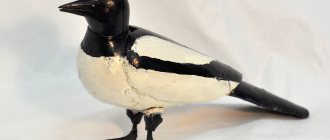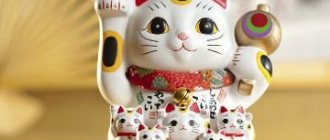What does an elephant mean in Feng Shui?
When arranging a house or apartment in accordance with the rules of Feng Shui, experts often place an elephant figurine on a bookshelf or fireplace. This ritual has its own meaning. In India, the elephant is a sacred animal, which is credited with noble qualities. The animal is associated with wisdom, strength, calmness, longevity, and reliability.
Buddhists believe that a figurine and even an image of an elephant can protect household members from negative energy and attract success, happiness and prosperity into the owner’s life with its long and strong trunk.
The size of the figurine of the sacred animal does not matter. According to Feng Shui experts, positive Qi energy will not leave a house if an elephant lives in it. In ancient times, people believed that the Earth stood on 3 elephants and 1 turtle. This is a strong and resilient animal that lays the foundation for warmth and joy.
By placing the figurine in a prominent place, you protect yourself and your household from conflicts and negativity. Buddhists say that the amulet will also protect against thoughtless spending and actions.
When you buy a figurine, pay attention to the material from which it is made. It is not recommended to purchase a product made of ivory, because... it brings deadly energy and misfortune. Remember that the figurine should please the eye, then it will fulfill its functions and properties. Another important point that requires attention is the direction of the animal’s trunk.
With trunks down
There are talismans with both lowered and raised trunks. An elephant with its trunk down brings stability, tranquility, peace, happy motherhood, and well-being in family relationships to the home. Such figures are less common, as some believe that a lowered trunk only brings despondency and depression.
We have selected interesting articles for you:
The most powerful runes to attract unconditional love
20.03.2019
The meaning of the Valkyrie amulet - an ancient symbol of warriors
20.03.2019
With his trunk raised
Figurines of elephants with their trunks raised and bent upward are more common; they evoke joyful associations. The animal bends its trunk upward, enjoys life and attracts positive energy.
An elephant with its trunk raised attracts happiness, luck, and joy into life. The figurine will inspire, protect from despondency, and motivate the owner. If an animal does not lower its trunk in the face of difficulties, then its owner should not lower his nose and give up in the face of obstacles. Place such a figurine on your desktop and look at it every time you want to put things off and give in to laziness.
What can it be made of?
The elephant mascot can be made from almost anything. It can be plastic, wood, ceramic and even metal.
If you want additional qualities from your elephant, then check out the magical meanings of wood and metal. Soft elephant toys are perfect for children.
IMPORTANT! You should not buy an amulet made of ivory. This will anger the powerful animal and lead to unpleasant consequences. Your health will deteriorate and there will be more failures and problems in your life. Be careful when choosing a talisman.
You can make an amulet with your own hands, for yourself or as a gift. You need to put positive thoughts into it, it will be charged with them and become much more effective.
It can be decorated with rhinestones, sparkles and other elements. The elephant will be perfectly complemented by a silver chain that can ward off evil forces, or a gold chain filled with the energy of the sun, which will enhance the attraction of good luck.
You will be interested: Znich - the meaning of the Slavic amulet, who is suitable for and how to use
Main types of figures
According to Feng Shui, the elephant figurine plays an important role in the home of every person who believes in its power. On the Internet and on the shelves of souvenir shops you can see a wide variety of different elephant figurines. Each has its own meaning and significance:
- the white elephant symbolizes the protection of the family hearth from negativity and accompanies the arrival of good luck in the home;
- 3 elephants – heaven, earth and man. Such a figure attracts harmony in all areas of the owner’s life;
- a mother elephant with a baby elephant symbolizes the appearance of offspring if you do not have any. In a family where children live, a mother elephant and her cub will protect them. They will also strengthen family ties;
- 7 elephants - complete well-being in everything you need: love, health, longevity, luck, happiness, mutual understanding with dear people and wealth;
- an animal with a mountain of gold coins under its feet symbolizes wealth and stability in money.
These were the main types of figurines, but there are dozens of them on the market, remember that not all of them bring only positive things, be careful when buying such a figurine and find out its meaning in advance.
What does the elephant symbolize in African culture?
In African culture, as well as in others, a special place was given to the animal world. The inhabitants of ancient Africa not only used various witchcraft and magical rituals in their daily lives, but also endowed the animals living nearby with such abilities. In their opinion, the elephant also had mystical powers. What is this royal creature a symbol of for Africans? First of all, the inhabitants of this continent associated the elephant exclusively with positive traits:
- strong character;
- deep mind;
- developed intelligence;
- logic and intuition;
- peacefulness and patience;
- integrity.
It was also a symbol of longevity and prosperity. There is evidence that an elephant standing on its hind legs was an adornment of the banners under which warriors went into battle. But an elephant with its trunk raised was a symbol of victory in Africa. Many frescoes that have survived and survived to this day depict the direct participation of these strong animals in battles.
The right number of elephants in the house
Professionals know that the Feng Shui elephant, whose meaning changes depending on how many other talismans are in the house, can carry different energies. Some people are keen on collecting various figurines, but not everyone understands what the number of figurines used can entail:
- 1 – strengthens self-confidence, gives the owner confidence in his actions;
- 2 – symbolize love, will help you meet your soulmate;
- 3 – denote a family and contribute to the birth of a child in the house;
- 4 – stability and wealth;
- 5 – will help in new endeavors, save you from the daily routine;
- 6 – promise good luck on the love and family front;
- 7 – they will fulfill all desires, will help in everything and always;
- 8 – will make you more resistant to twists and turns of fate;
- 9 – often placed in a children’s room to help the child with learning and development;
- 10 – will change life for the better, help in difficult times;
- 11 - will attract a strong patron, give more moral strength and good health.
The meaning of the elephant figurine in different cultures
In different cultures and beliefs, there are special attributes that contribute to imparting magical powers. There are a huge number of them, but each of them has its own purpose. The elephant as a symbol is most often depicted in three ancient cultures: Chinese, African and Indian. But over time, the elephant talisman spread to many corners of the globe.
Elephant symbol in feng shui
The teachings of Feng Shui have a large number of mysterious symbols and amulets, but special significance is attached to the image of an elephant. Thanks to this, it is credited with natural nobility and stone stability.
Having an elephant figurine in the house has a beneficial effect on the internal atmosphere and allows you to attract a positive attitude and good luck. For a more effective result, it is recommended to place it towards a star with good potential. Typically, the south-east and north-west sides of the house are suitable for such a place. Being on these sides, the figurine will project energy onto the head of the family to support his spirit. If you want to preserve the accompanying luck, it is better to turn the elephant figurine with its trunk inside the apartment.
In the practice of Feng Shui, an elephant figurine as a talisman does not need to be charged with additional energy; it was originally created in the form of a strong talisman.
It is worth mentioning separately that the teaching speaks not only about the symbol of this animal, but also about how many there should be to achieve certain goals.
Thus, if you decide to purchase figurines, you should find out the value of their quantity:
- One figurine. It encourages striving, unity with the natural principle, gives clarity of mind, the opportunity to more deeply feel the influence of living forces. Helps achieve balance in relation to the internal and material world.
- Three figures are a symbol of the foundation, the heavenly foundation. Three elephants connect a person with Heaven and Earth. The presence of three figures in life will provide what is necessary to achieve balance, bring peace of mind, and serve as a guide to the life-giving forces of nature.
- Seven figures. According to the teachings of Feng Shui, it is known that the Complete Heavenly Cycle is associated with the symbol of seven elephants. The moon goes through all its phases in seven days, of which there are the same number in a week. It is this number that is compared with perfection and completeness.
Elephant symbol in Chinese culture
For the Chinese people, it equates inner strength and flow of energy. The myths use the image of an elephant warrior fighting terrible spirits. For example, near the tombs of the Ming Dynasty, huge stone figures of this animal, standing upright and kneeling, guard the path leading to the tombs. There is another Chinese legend that says that childless women turn to these elephants and ask for the opportunity to continue their family.
China considers the elephant a symbol of positivity and a bright attitude towards life, and interest in development.
So, the following qualities were compared with him:
- foresight;
- cunning;
- efficiency;
- understanding;
- success in business;
- passion;
- the ability to stand up for yourself.
Elephant and its designation in Indian culture
The elephant is a key figure in Indian mythology and occupies an overwhelming part of ethnic culture. This is explained by the fact that the animal is equated with a deity. Hindus admire the restraint and wisdom of the giant and tend to venerate him along with other sacred animals. According to established tradition, elephants have been considered the pillar of the world since ancient times.
It’s incredibly interesting what the elephant became a symbol of here:
- amazing wisdom;
- holy war;
- pride.
The image of an elephant is endowed with deep meaning and is used throughout the state. It is customary to decorate temples and houses with it in the form of wall paintings and embroidery on clothes.
Even more awe-inspiring is the veneration of the god Ganesh, who personifies invulnerability and caution. Buddhism claims that he was born with the head of an elephant, and his purpose is to protect humanity.
The elephant in India, as the king of animals, has absorbed the features that distinguish a worthy ruler:
- perfection;
- mental capacity;
- prudence;
- peacefulness.
Elephant in African culture
In Africa, this animal means only positivity, and is associated with the following qualities:
- sincerity;
- endurance;
- virtue;
- high mental abilities;
- noble upbringing;
- logical mindset;
- instinct;
- loyalty to one's convictions;
- longevity;
- success in worldly affairs.
African peoples were subjected to numerous attacks by conquerors and colonization of territories. Due to the events that took place, a mentality was formed with a specific interpretation of the symbolic meaning of the elephant figure. It was then that the powerful and heavy religion of Voodoo was born, which later turned into ritual magic. Witchcraft and symbolism have been an integral part of African cultural life.
Particular attention was paid to unity with nature and the animal world. The symbolism used in Africa implied differences in the color of the sign. Thus, the Gray and White Elephant stood out, each in their own way endowed with numerous supernatural powers and incredible potential. For some, the Gray Elephant, depicted standing on its hind legs, meant the beginning of the battle and the readiness to fight to the end. Many banners of the troops were decorated with such images to maintain the spirit of the soldiers.
Others saw a second type of symbol in the White Elephant with its trunk rising upward. This sign indicated the achievement of a goal and triumph in business. This theory is based on ancient drawings and paintings of caves telling about battles involving these majestic and brave animals. After the battle, fallen elephants were given honor and praise, just like humans.
Elephant in Thai culture
Since ancient times, Thailand has chosen the figure of an elephant as the symbol of its country. For many centuries, elephants lived on an equal basis with ordinary people and helped with housekeeping. But, as in other cultures, there were sometimes warriors in which these animals were indispensable as weapons.
The elephant was also valuable at the royal court, as it was considered a symbol of power, divinity and inaccessibility. History indicates that during the reigns of all the kings of Thailand, it was a luxury and an indicator of the dignity of the ruler. Thanks to the honors received, the White Elephant symbol was depicted on the Thai flag until the early nineteenth century. At present, the image has been preserved only on the banner of the Royal Navy.
Elephants in Thailand are a national treasure of the country; they are declared sacred animals.
The Thai people see in him the personification of the three main tenets of Thailand:
- beliefs;
- own life;
- king.
Elephants are so revered and idolized that they have thoroughly taken the place of an ethnic sign, even the official Order of the White Elephant has been established. This department recognizes the merits of people who have shown courage and achieved success in battle. Given this fact, it is not surprising that images of elephants are everywhere. They decorated the streets of churches, embroidered clothes and painted dishes.
Elephant in European culture
Elephants were not so common in Europe, so they were considered magical creatures. In this regard, they were depicted as guardians of the gates to heaven or hell. As a symbol, the image of the elephant has not been seen on a large scale. Knowledge about the meaning of something is extremely poor and superficial.
The fact is that since time immemorial the elephant has been known as an imaginary creature, but this did not stop believing Europeans from christening it with the sign:
- peace of mind;
- royal grandeur;
- awareness of one's own importance;
- great wisdom;
- fortitude;
- animal power;
- self-esteem.
Initially, this animal was depicted as a mythological monster, gifted with the power of flight, and was even depicted with angelic wings. Later, in the wave of battles, the crusaders began to use images of the elephant as a sign on coats of arms and banners.
In the video filmed by the Hello Answer channel, the authors reveal the symbolic meaning of the elephant.
Where to put the elephant figurine
People who do not understand Feng Shui often wonder where to place the talisman. This is an important aspect, because the position of the figure affects its impact. Places where the figurine may be located:
- Opposite the entrance to the house. Place 2 elephants facing those entering, and the figures will protect against unpleasant guests and negative visits.
- Opposite sharp corners. A large number of corners in the house carry negative Sha energy. Elephants with their trunks turned towards the corners will protect you from harmful influences.
- Southeast of the house. A talisman in this place will bring stability in the material sphere.
- Northwest. An elephant standing at this point in the house will support the head of the family and relationships in the home.
- Bedside chest of drawers in the bedroom. Place 2 elephants there to strengthen love relationships, fidelity and mutual understanding.
- Desktop. A figurine on your desk will increase activity and performance. She will help in all endeavors and new projects.
- Eastern part of the house. An elephant will help its owner improve health and stamina.
If you want to achieve harmony in all areas, then do not place figurines in dark corners, scary and unkempt shelves, near faulty sockets.
Talisman meanings
The elephant, in the culture of India and Africa, is the king of all animals. It has been associated with different qualities:
- wisdom;
- longevity;
- well-being;
- fertility;
- peacefulness and confidence.
The elephant amulet has many useful aspects. Among them, everyone will find what they need. What an elephant can do for its owner:
- improve health and increase life expectancy;
- impart wisdom, help cope with difficult situations and make the right decision;
- bring prosperity and prosperity to the home;
- improve relationships in the family, bring balance and harmony to the soul;
- bring good luck to your home.
The amulet will protect against new diseases and help cope with existing ones, bringing happiness and optimism. It will help you avoid wasting money on trifles, and your income will increase.
With the help of this talisman, you can develop an analytical mind, become more reasonable, and bolder in your decisions.
The best talisman would be:
- people seeking self-development and self-knowledge;
- people with poor health;
- people who need money and financial workers;
- people who are stressed at work;
- families who want to have a child;
- for those who want to use it as a home talisman.
REFERENCE! The elephant is an amulet that suits absolutely everyone. It is only important to decide what you want from him.
Elephant mascot in feng shui
In the Chinese practice of Feng Shui, animals and gods had great power and their images could bring success to a home and improve the lives of its inhabitants. The elephant amulet symbolizes wisdom, patience, strength and kindness, stability.
You may be interested in: How to make a broom amulet and how to hang it
He is able to attract love, harmony and good luck into the house, just as an elephant draws in water with its trunk to drink water. Placing this amulet in the house will attract flows of positive Qi energy.
How to properly activate, charge and clean the amulet
Activating the action of the magic figurine is not difficult. To do this, the following actions are carried out in the first phase of the lunar cycle:
- Place the talisman in salt for 3 days, which must be buried in the ground after use for magical purposes.
- Keep the amulet in the ground for some time.
- Rinse with running water or hold over a candle flame.
- Place it on the windowsill overnight so that the amulet is charged with lunar energy.
After this, the amulet can be used.
However, there is an alternative option for activating the talisman, which helps to quickly form an energetic connection between the amulet and its owner. Instead of the actions described above, a person can only supplement the amulet with some insignificant element that has long belonged to him: hang a new pendant on a chain that he has been wearing for several years, sew a red thread from his hand onto a textile amulet.
The amulet feels the care of the owner. If a girl puts a napkin under the figurine, which she specially knitted for this figurine, the effect of the amulet will increase.
To prevent the magical potential of the amulet from decreasing, it must be cleaned periodically. There should be no unnecessary things, debris, or dust near the location of the talisman.
Why should there be an elephant figurine in the house for peace and prosperity?
As you know, elephants live in large and friendly families, protect each other and surround each other with care. Since ancient times, they have been one of the most revered animals, considered a symbol of goodness, peace and strength. Feng Shui masters claim that an image or figurine will convey these properties to the house in which it is located.
It is the figure of an elephant that is suggested in Feng Shui to have in an apartment to protect it from destructive and negative energy. It is recommended to place the talisman on a windowsill or on a shelf in the center of the apartment.
The position of the trunk is of great importance. If you want to improve your financial situation, it must be directed upward; it will attract good luck and career growth.
The meaning of an elephant in embroidery, the symbolism of paintings
An embroidered image of an animal will also have magical powers. The features of the embroidered picture will be the same as those of figurines, pendants, and soft toys. But it should be remembered that when a girl embroiders a picture, she enhances the effect of the amulet with her energy. Therefore, during this lesson, she should think only about good things. You should not take up embroidery in a bad mood. Also, there is no need to force yourself to embroider the amulet: the magical power of the talisman will increase only if its making gives the craftswoman true pleasure.
The finished embroidery must be beautifully decorated: inserted into a frame or sewn onto a pillowcase.
The painting of three elephants symbolizes the unity of man, earth and sky. Such a picture will help a person learn to live in harmony with himself and with the world.











